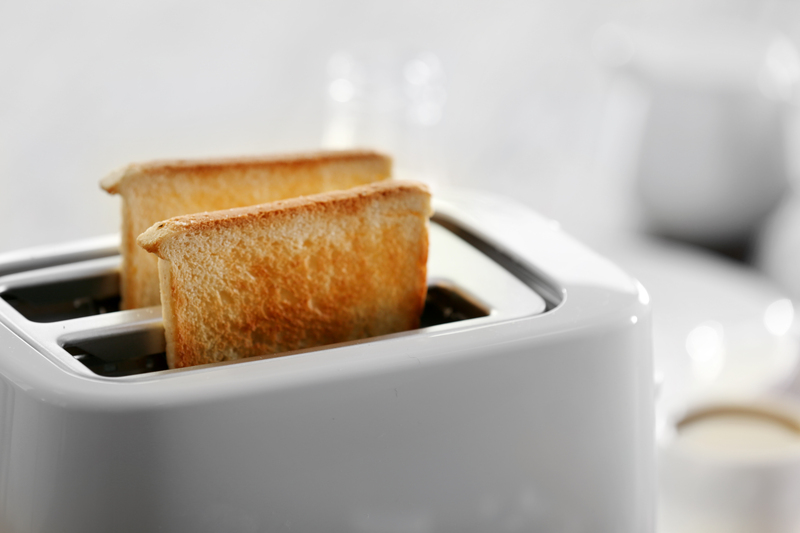A Closer Look at Organic Flooring: Types and Care Instructions
Posted on 08/07/2024
Organic flooring is becoming increasingly popular among homeowners who are looking for environmentally friendly and sustainable options for their homes. Made from natural materials such as cork, bamboo, or linoleum, organic flooring offers a unique blend of beauty and functionality. In this article, we will take a closer look at the different types of organic flooring available and how to properly care for them.
Types of Organic Flooring
1. Cork Flooring
Cork flooring is made from the bark of cork oak trees, making it an eco-friendly option. It is highly durable and resists moisture, making it ideal for kitchens and bathrooms. It also has natural thermal insulation properties, ensuring that your floors feel warm and comfortable throughout the year. Furthermore, cork flooring is available in various colors and patterns to match any interior design style.
2. Bamboo Flooring
Bamboo flooring is another eco-friendly option that has gained popularity in recent years. It is made from fast-growing bamboo plants, making it a sustainable choice for your home. This type of flooring is known for its strength and durability, making it suitable for high traffic areas like living rooms and hallways. Bamboo flooring also comes in various shades and patterns to fit your aesthetic preferences.
3. Linoleum Flooring
Linoleum flooring has been around since the mid-1800s but has experienced a resurgence in recent years due to its eco-friendliness. Made from natural materials such as linseed oil, pine resin, wood flour, and mineral pigments, linoleum flooring is biodegradable and non-toxic. It is also highly durable and easy to maintain, making it a popular choice for busy households.

Care Instructions for Organic Flooring
1. Regular Cleaning
The key to maintaining organic flooring is regular cleaning. Use a broom or vacuum with a soft brush attachment to remove dirt and debris regularly. Avoid using harsh chemicals or abrasive cleaners that can damage the surface of your flooring.
2. Wipe up Spills Immediately
Organic flooring is susceptible to water damage, so it's essential to clean up any spills immediately. Use a clean, damp cloth to wipe up any spills and dry the area thoroughly. Avoid using excessive amounts of water on your organic flooring as it can cause warping or discoloration.
3. Protect from Sun Exposure
Excessive exposure to sunlight can cause fading and discoloration in organic flooring. Install curtains or blinds to protect your floors from direct sunlight, especially in rooms with large windows.
4. Use Mats and Rugs
Place mats or rugs at entryways and high traffic areas to prevent dirt and debris from being tracked onto your organic flooring. This will help protect the finish and extend the life of your floors.
Pros and Cons of Organic Flooring
Pros:
- Environmentally friendly and sustainable option
- Durable and long-lasting
- Available in various colors and patterns
- Easy to maintain
Cons:
- Can be more expensive than traditional flooring options
- Requires proper care to avoid water damage
- May fade or discolor with prolonged exposure to sunlight
Tips for Choosing Organic Flooring
1. Consider Your Lifestyle
When choosing organic flooring, consider your lifestyle and the level of foot traffic in your home. For example, if you have pets or young children, a more durable option like bamboo or cork flooring would be ideal.
2. Research Different Types of Organic Flooring
Do your research before making a decision as there are different types of organic flooring available, each with its own strengths and weaknesses. Consider factors such as durability, moisture resistance, and ease of maintenance when choosing the right type for your home.
3. Invest in Quality Installation
Organic flooring requires proper installation to ensure its longevity. Invest in quality installation services from a reputable company to avoid any potential issues down the line.

Takeaways
Organic flooring offers an eco-friendly and sustainable option for homeowners who want to reduce their environmental impact. It is available in various types, each with its unique benefits and care requirements. Regular maintenance and proper care are essential to extend the lifespan of your organic flooring.
Conclusion
Organic flooring provides a beautiful and environmentally friendly option for homeowners looking to upgrade their floors. With proper care and maintenance, it can last for many years and add a touch of natural beauty to any home. Consider your lifestyle, do your research, and invest in quality installation services to enjoy the many benefits of organic flooring.
Latest Posts
Tips for Keeping Wood Floors Spotless
Weekly Cleaning: Top Advantages
Routine Carpet Cleaning: Expert Recommendations



